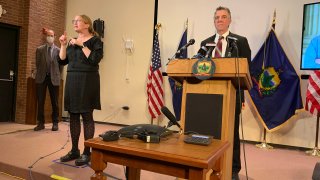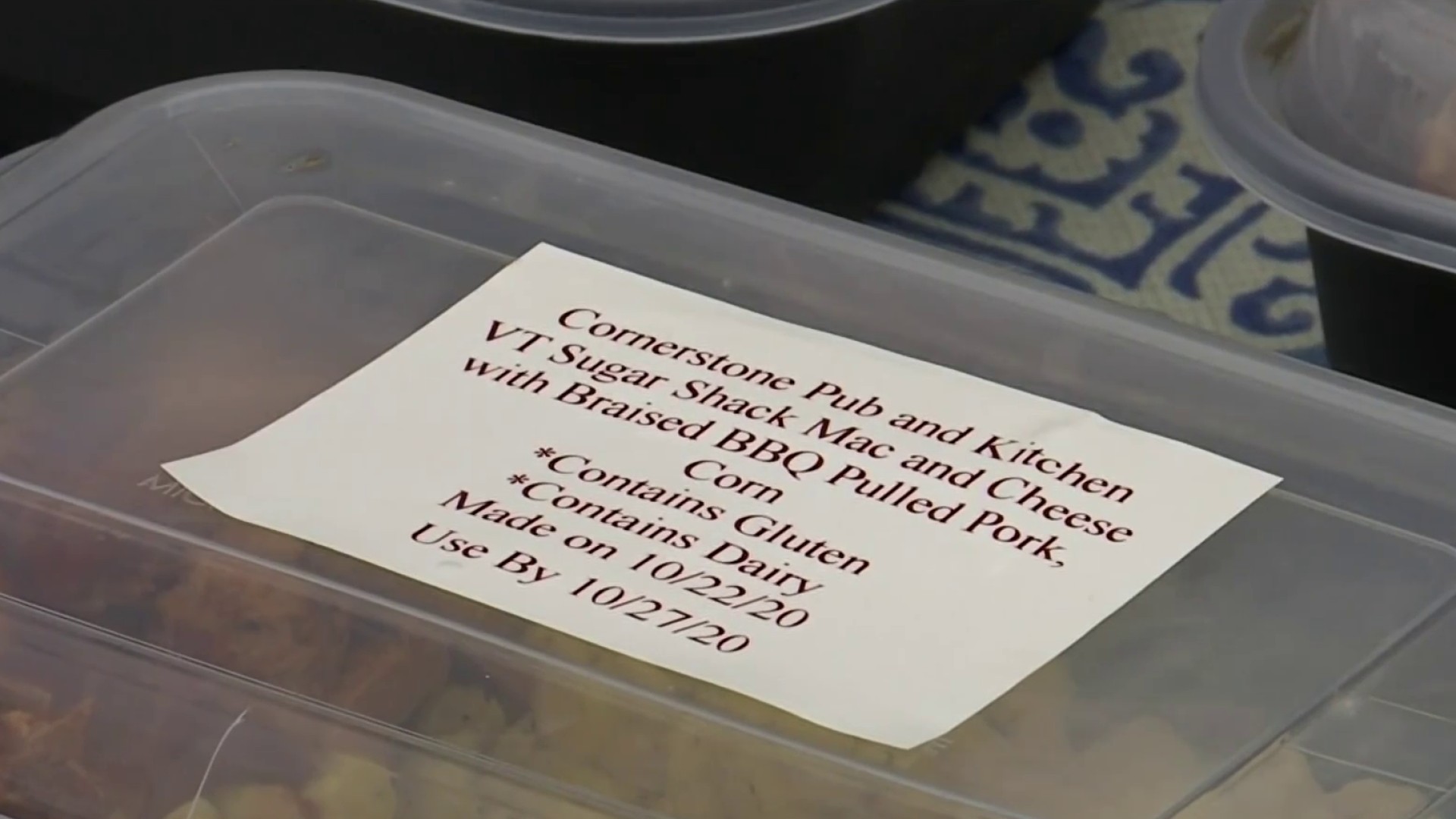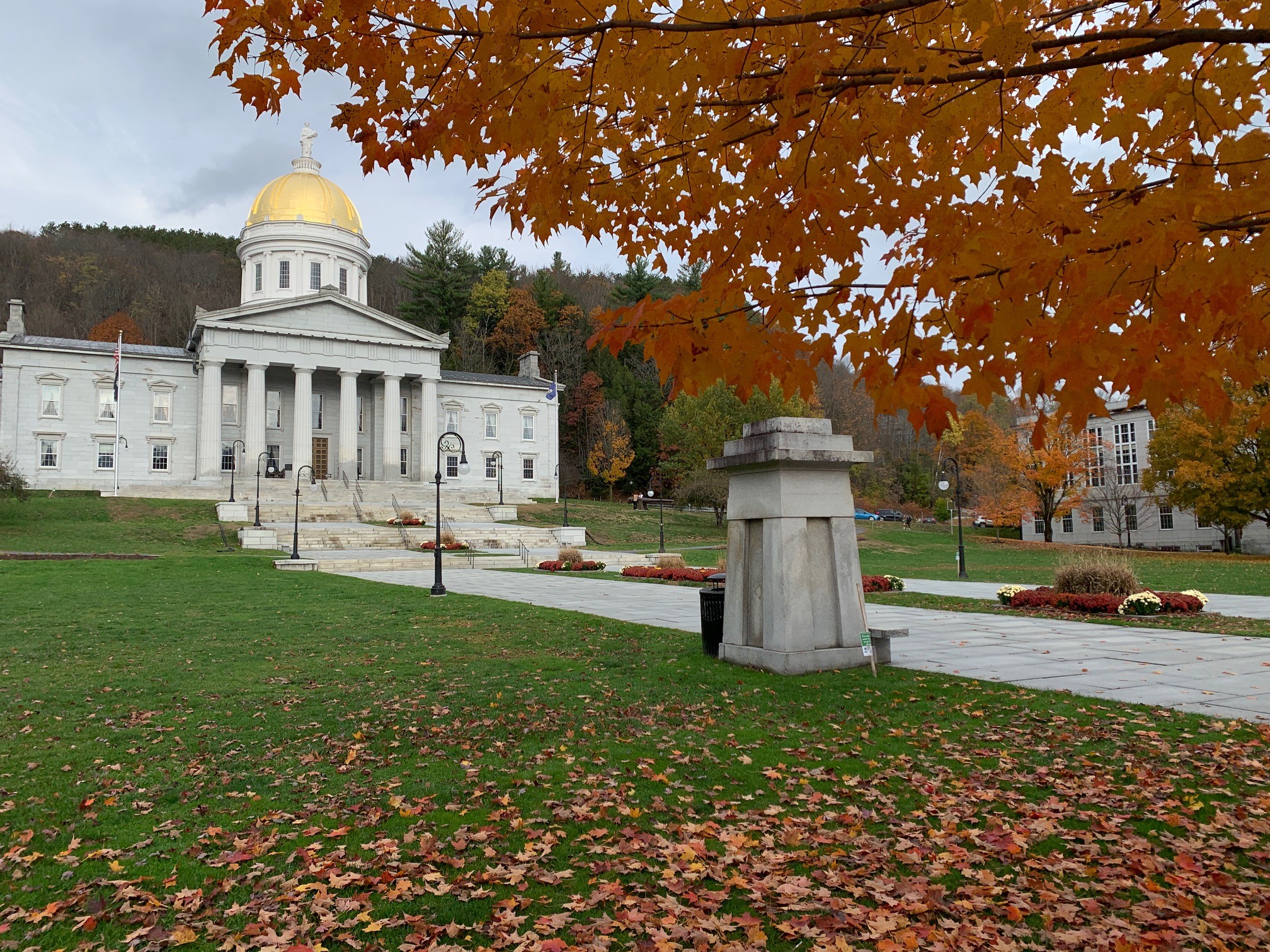
Vermont Gov. Phil Scott and health officials on Tuesday sounded the alarm over small gatherings, saying meetings within small social networks were contributing to a spike in cases across the state.
The officials said the virus is spreading at gatherings among families and friends, where food or drink is involved and people may not be wearing masks at all times or social distancing.
"Getting together without taking precautions, including mask-wearing and distancing, or not following the travel guidance, appeared to be a common denominator in what we've been seeing over the last few weeks," Scott said during a press briefing.
"I hope everyone will think about this as we approach Halloween... We need everyone to be smart about any gatherings you go to."
Health commissioner Mark Levine added: "This is really a wake-up call for us all," adding in some cases, people who attended small gatherings likely had not quarantined properly after returning to Vermont from other states.
The message comes as the Gov. Phil Scott administration grapples with multiple simultaneous outbreaks across the state, despite a relatively low percentage of positive test being returned.
Last week, the state last week reported its highest daily total of positive cases in several weeks. That total came on Thursday, when health officials reported 28 new cases.
Officials said Friday they were tracking at least three separate outbreaks that have lead to dozens of cases.
The first is a cluster among youth and adult hockey players that lead to a number of cases in central Vermont. The second is related to a social event in Memorial County and the third is new, an outbreak at St Michael's college, which was discovered through ongoing surveillance testing.
The outbreak in central Vermont now involves two colleges with six cases, seven schools with a total of 12 cases, seven workplaces with a total of 12 cases and two hospitals with two cases. Half were people who had been inside arenas and the other half were "second or third generation" cases.
Education officials expected to see more cases of coronavirus in schools, they said. An elementary school in Montpelier is going fully remote Friday after having just reported another case of coronavirus at a different grade level in a different instructional pod from a previous case reported there.
Scott's administration on Monday announced changes to recreational sports guidance in response to the outbreaks, including limiting recreational leagues to in-state activities only and tightening restrictions for spectators.
Scott stressed that the outbreak connected to hockey players did not stem from in-person games or practices, but rather from social gatherings after competitions and carpooling.
Meanwhile, Scott announced the University of Vermont will take part in Phase 3 trial of a potential coronavirus vaccine being developed by Oxford University in collaboration with British pharmaceutical giant AstraZeneca.
Dr. Beth Kirkpatrick, an infectious disease specialist at UVM, said 250 volunteers would participate in the trial and that those people would be made up of people over 65 with stable but chronic preexisting conditions, as well as frontline workers.
One-third of participants will be given a placebo while the rest will be administered the potential vaccine, Kirkpatrick said.
AstraZeneca on Monday said its potential vaccine had produced a similar immune response in older and younger adults, CNBC reported.
The firm said adverse responses to the vaccine among the elderly were also found to be lower.
As coronavirus cases rise in Vermont, education officials last week revised guidance to schools, which will go into effect in mid-November to give districts time to adjust. The new guidelines include mandatory travel screenings, expanded distance requirements in classrooms and cafeterias and limitations on music activities inside.



